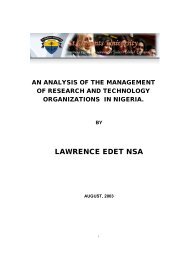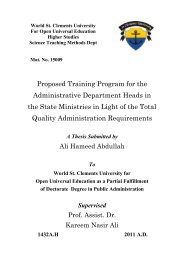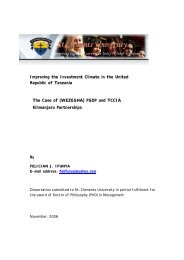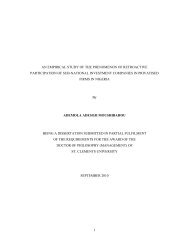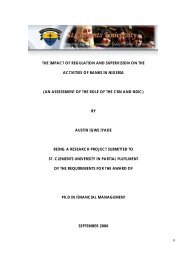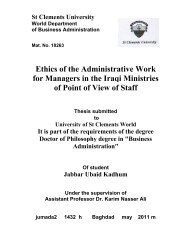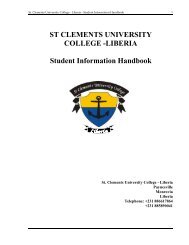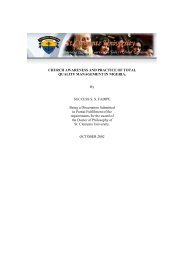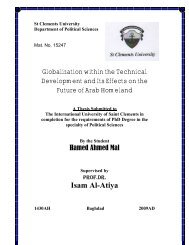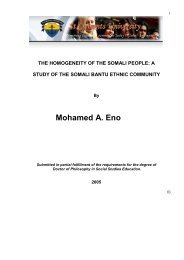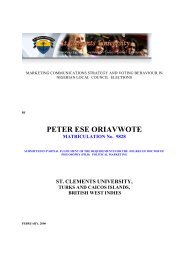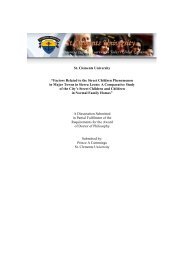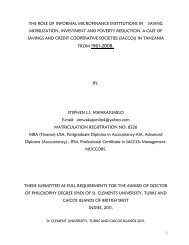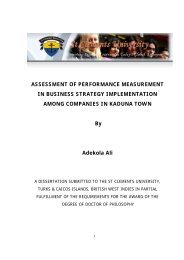Rufus Folorunso Akinyooye - St Clements University
Rufus Folorunso Akinyooye - St Clements University
Rufus Folorunso Akinyooye - St Clements University
You also want an ePaper? Increase the reach of your titles
YUMPU automatically turns print PDFs into web optimized ePapers that Google loves.
identifying these reserves because of the diversity of accounting, supervisory and fiscal policies<br />
in respect of provisioning and national definitions of Capital.<br />
Item 20 has the Committee aiming to develop before the end of 1990 firm proposals applicable<br />
to all member countries, so as to ensure consistency in the definition of general provisions and<br />
general loan-loss reserves eligible for inclusion in the capital base should the interim and final<br />
minimum target standards fail to be observed.<br />
(4) Hybrid debit capital instruments - These are some capital instrument which item 22 says<br />
combine certain characteristics of equity and certain characteristics of debt. Each of them has<br />
particular features, which can make them qualify as capital. Should they have close similarity<br />
to equity especially the ability to support losses on on-going basis without triggering<br />
liquidation, they may be included in Supplementary Capital. Some instruments in member<br />
countries were specifically mentioned as being eligible.<br />
(5) Subordinated term debt - It was concluded that this instrument can be included if it has a<br />
minimum original term of over five years but only to a maximum of 50% of the core capital<br />
element and subject to adequate amortization arrangements.<br />
Item 24 -<strong>St</strong>ates that the following deductions should be made from the Capital base for the<br />
purpose of calculating the risk-weighted Capital ratio:<br />
(i) Goodwill, as a deduction from tier I.<br />
(ii) Investment in subsidiaries engaged in banking and financial activities which are not<br />
consolidated in National Systems. This is to prevent duplication of the same capital resources<br />
in different parts of the group.<br />
Items 25-27 are on the Committees deliberation on the possibility of requiring deduction of<br />
cross-bank holding of capitals whether in form of equity or other capital instruments. Several<br />
G-10 countries are making the deduction currently in order to discourage cross holding of<br />
capital in their banking system, instead of drawing them from outside investors. The<br />
Committee called it double gearing (or double leveraging) and said it could have systemic<br />
dangers for the banking system by creating a domino effect should one institution is troubled.<br />
The Committee was not in favour of a general policy but nonetheless agreed that: -<br />
(a) Individual national supervisory authorities can use their discretion to apply a policy of<br />
deduction;<br />
(b) In the absence of (a) cross-bank holding of Capital instrument will bear a risk-weight of<br />
100%;<br />
(c) Reciprocal cross-holdings of bank capital designed to inflate the capital position of the<br />
banks concerned should not be permitted.



